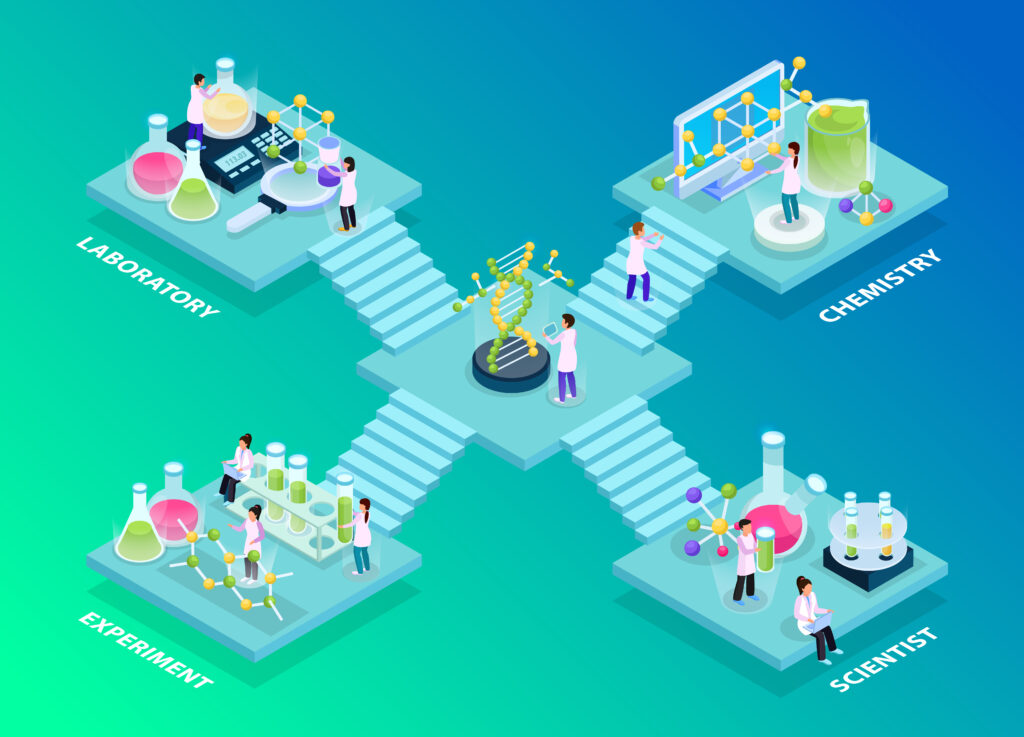In the ever-evolving world of life sciences, supply chains play a pivotal role in ensuring that critical medications, medical devices, and health products reach patients on time and in optimal condition. However, the complexities associated with managing global life sciences supply chains—ranging from regulatory compliance to access challenges—have presented ongoing obstacles. To overcome these hurdles, the integration of built-in support systems into the supply chain is emerging as a game-changing solution. These integrated systems not only help streamline operations but also enhance access and compliance, thereby transforming the efficiency and effectiveness of life sciences supply chains.
The Challenges of the Life Sciences Supply Chain
The life sciences industry faces a unique set of challenges when it comes to supply chain management. Some of the most pressing issues include:-

- Regulatory Compliance: The pharmaceutical and medical device sectors are heavily regulated by authorities like the FDA, EMA, and other local and global regulators. Ensuring compliance with these stringent regulations can be complex and time-consuming. Failing to comply can result in delays, fines, and even product recalls.
- Access to Medicines and Devices: Many patients, particularly those in rural or underserved areas, face barriers to accessing essential medicines and medical devices. Geographic, logistical, and socio-economic factors often create disparities in access, exacerbating health inequities.
- Supply Chain Visibility: Lack of transparency and real-time visibility into supply chain operations makes it difficult to track product movement, predict disruptions, or mitigate risks before they escalate. This is especially critical in life sciences, where the timely delivery of products can directly impact patient health.
- Temperature Sensitivity and Product Integrity: Many life sciences products, including biologics, vaccines, and certain medications, are highly sensitive to temperature changes and must be transported and stored within strict conditions. Managing these conditions requires sophisticated monitoring systems.
- Globalization and Complexity: The globalization of supply chains in life sciences means products are sourced from multiple countries and regions. This complexity increases the risk of delays, regulatory challenges, and disruptions in product flow.
Given these challenges, life sciences companies are increasingly looking for ways to build a more agile, efficient, and compliant supply chain. Enter the concept of “built-in support”—integrated tools and systems designed to address these pain points and enhance overall performance.
Built-In Support: A Game Changer for Life Sciences Supply Chain
“Built-in support” refers to the integration of tools, technologies, and services directly into the supply chain process to streamline operations, ensure regulatory compliance, and enhance access. This approach offers a comprehensive solution that improves overall efficiency, reduces costs, and enables companies to meet the unique demands of the life sciences industry.
Here’s how built-in support is revolutionizing the life sciences supply chain:
1. Improving Access to Life-Saving Products
One of the most significant benefits of integrated support systems is their ability to improve access to essential life sciences products. By utilizing advanced logistics platforms, real-time tracking, and automated inventory management systems, life sciences companies can ensure that products are delivered to the right locations at the right time.
In underserved areas or remote regions, built-in support systems help optimize distribution channels, ensuring that medications and medical devices are available where they are most needed. These systems can also facilitate partnerships with local healthcare providers to bridge access gaps, improving patient outcomes and addressing health disparities.
Furthermore, the ability to track and trace products in real-time ensures that health providers have reliable access to inventory data, reducing the risk of stockouts and improving the predictability of deliveries.
2. Ensuring Regulatory Compliance
Regulatory compliance is a top priority in the life sciences industry. Built-in support systems, such as automated compliance tracking tools, help companies meet the ever-evolving regulatory standards set by authorities worldwide.
For example, many of these systems are designed to automatically update and manage documentation in compliance with the latest regulations, ensuring that manufacturers, distributors, and other stakeholders in the supply chain adhere to necessary standards. Compliance features can include the ability to generate audit trails, manage certifications, and monitor changes to international laws.
In addition, built-in support systems help ensure that sensitive products, like biologics and vaccines, are transported under the required conditions. Temperature-controlled supply chains, combined with real-time monitoring and alerts, can detect any deviations from compliance and immediately notify stakeholders to address the issue before it results in a non-compliant product.
3. Enhancing Transparency and Visibility
Built-in support systems improve the visibility and transparency of the entire supply chain, allowing companies to track products from production to delivery. Real-time tracking and monitoring tools provide a 360-degree view of the supply chain, allowing manufacturers, distributors, and healthcare providers to monitor product movement and identify potential bottlenecks or delays.
For life sciences companies, this level of visibility is critical to ensuring the timely delivery of products. If a delay or disruption occurs, built-in support systems can provide immediate alerts, allowing teams to quickly adjust and mitigate risks. Enhanced visibility also helps companies make more informed decisions, optimize inventory management, and streamline operations to reduce waste and improve cost efficiency.
4. Optimizing Temperature-Controlled Shipping
Many life sciences products are highly sensitive to temperature and environmental conditions. Built-in support systems include temperature monitoring solutions that can track the conditions during transportation and storage of sensitive products. These solutions ensure that products like vaccines, biologics, and specialty medications remain within required temperature ranges from the moment they leave the warehouse to their final destination.
With these systems, companies can prevent product spoilage, which not only saves money but also ensures that patients receive high-quality, safe products. Temperature-sensitive supply chains also help with compliance, as proper documentation is essential for meeting regulatory standards for temperature-controlled products.
5. Streamlining Operations and Reducing Costs
By integrating built-in support, life sciences companies can automate many aspects of their supply chain, reducing manual processes and the potential for human error. Automation tools, like robotic process automation (RPA), AI-driven analytics, and inventory management software, streamline operations and improve efficiency.
Automated systems can also optimize inventory levels, predict demand more accurately, and reduce overstocking or understocking risks. This leads to lower operational costs and fewer product shortages, enhancing overall efficiency and profitability.

Conclusion: A More Agile, Compliant, and Accessible Future
Built-in support is transforming the life sciences supply chain by addressing some of the industry’s most pressing challenges—access, compliance, and operational efficiency. By integrating advanced technologies, real-time tracking, and automated compliance tools, companies can ensure the timely delivery of life-saving products while maintaining the highest standards of quality and regulatory adherence.
In an industry where patient outcomes are paramount, the ability to streamline supply chain operations, enhance access to essential products, and ensure compliance with regulations can make all the difference. As built-in support systems continue to evolve, they will undoubtedly play an even greater role in improving the accessibility, affordability, and reliability of life sciences products, ultimately benefiting patients worldwide.
Also Read: https://lifescienceinsights360.com/blog/role-of-grape-consumption-to-boost-muscle-health/
https://lifescienceinsights360.com/blog/how-your-gut-microbiome-impacts-anxiety-and-mental-health/






